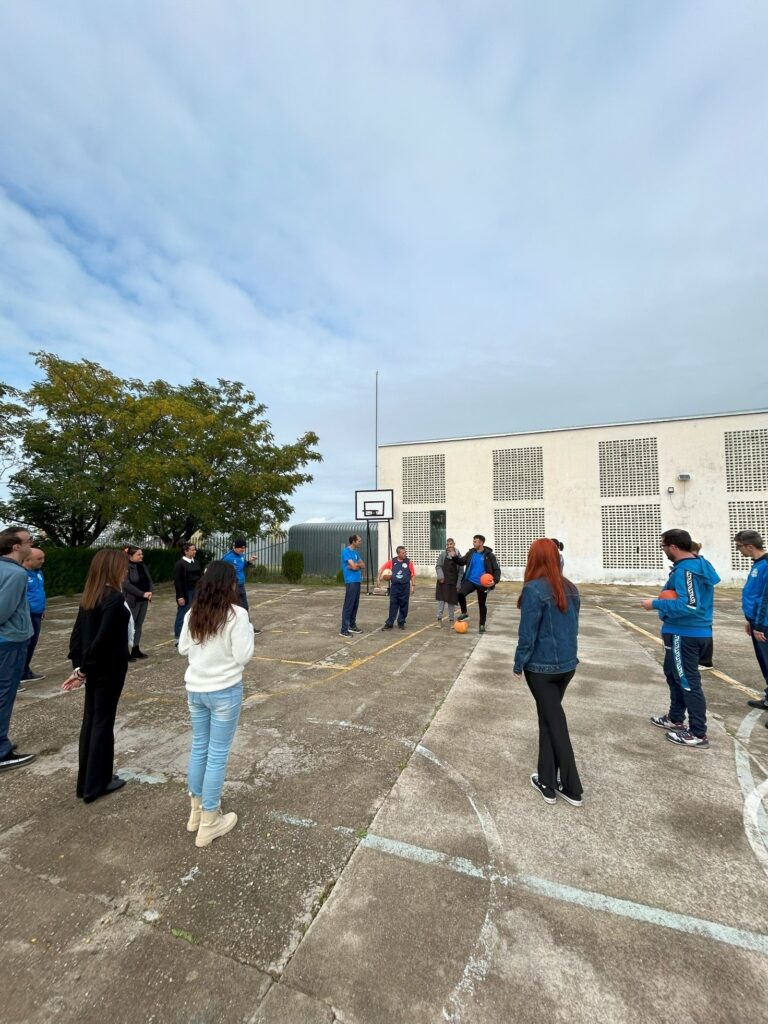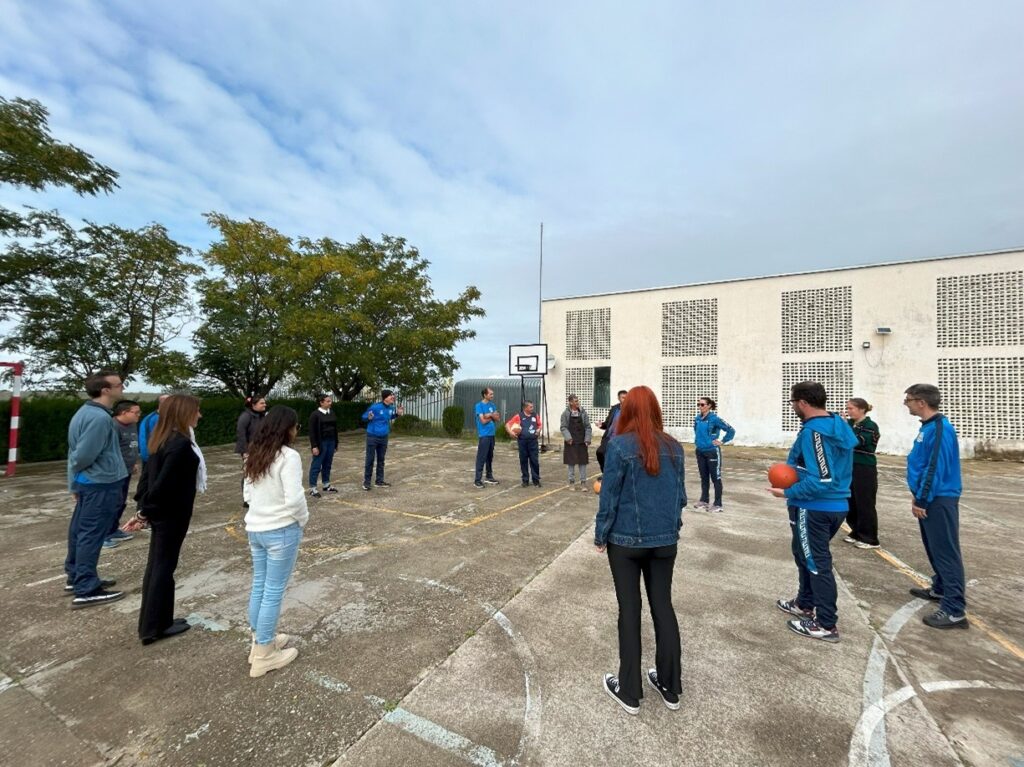WOMAD – Women Against Discrimination 101089734
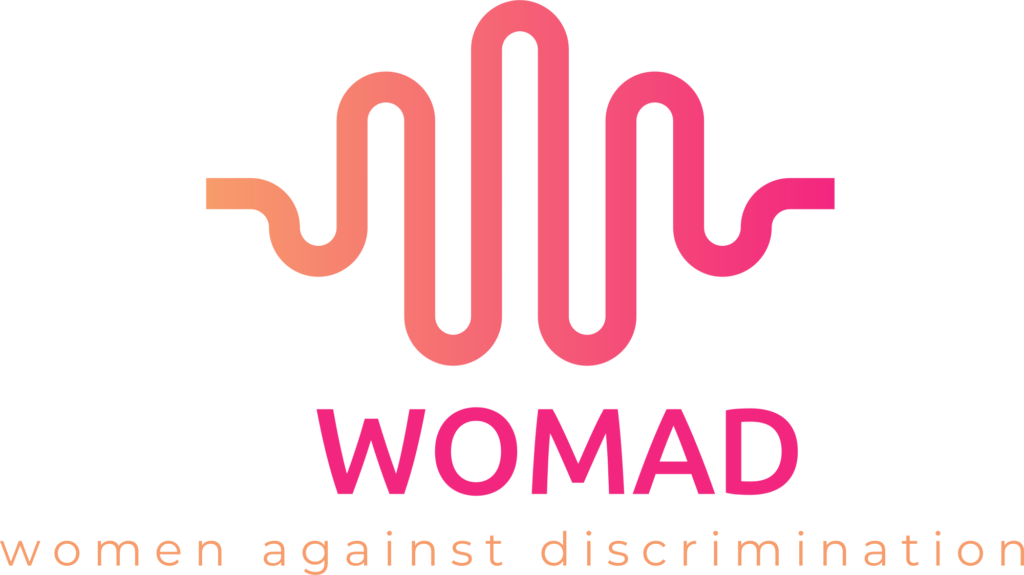
IL PROGETTO

WOMAD (Women Against Discrimination) sostiene l’inclusione di gruppi target con minori opportunità e promuove una cittadinanza europea attiva. Porta la dimensione europea a livello locale, coinvolgendo scuole e club sportivi dei paesi partner. Lo sport è sempre stato visto come una prerogativa maschile, in particolare il calcio, con una copertura mediatica frammentaria delle competizioni femminili e un atteggiamento riluttante verso le ragazze che vi si avvicinano.
I partner vogliono contribuire a “ridurre il divario” nella percezione della pratica sportiva tra ragazzi e ragazze. Il progetto coinvolge organizzazioni e club sportivi di Spagna, Macedonia del Nord, Italia e Serbia.
Sulla base delle esigenze condivise, sono stati definiti 3 obiettivi generali, quali:
- Combattere gli stereotipi sessisti e la violenza nel calcio.
- Promuovere la pratica del calcio tra donne e ragazze e favorire l’inclusione sociale e le pari opportunità.
ABOUT THE PROJECT

WOMAD (Women against discrimination) supports the inclusion of target groups with fewer opportunities and an active European citizenship. It brings the European dimension to the local level involving schools and sport clubs from the partner countries. Sport has always been seen as a male prerogative, especially football, with a fragmentary media coverage of female competitions and a reluctant attitude towards girls approaching it. The partners want to play their part in “closing the gap” between the perception of boys and girls sport practice. The project involves organizations and sport clubs from Spain, North Macedonia, Italy and Serbia.
According to their shared needs, they set 3 general objectives such as:
- tackle sexist stereotypes and violence in football.
- enhance football practice among women and -girls and promote social inclusion and equal opportunities.
PARTNERSHIP
- MINORITY LEADERS FOR SOCIETY – NORTH MACEDONIA
- EUROMAMME– ITALY
- FUDBALSKI KLUB CRVENA ZVEZDA– SERBIA
- SOCIEDADE DEPORTIVA O VAL DE NARON – SPAIN

KICK OFF MEETING
Il meeting di avvio del progetto WOMAD si è tenuto a Belgrado, in Serbia, presso la sede del partner ospitante. La location ha offerto un ambiente accogliente e professionale, favorendo un dialogo costruttivo tra tutti i partecipanti.
L’incontro è iniziato con un caloroso benvenuto da parte del coordinatore del progetto, che ha accolto i rappresentanti delle organizzazioni partner provenienti da Spagna, Italia, Macedonia del Nord e Serbia. Dopo una breve introduzione, sono stati delineati i valori fondamentali di WOMAD: inclusione sociale e contrasto agli stereotipi di genere nello sport, con un’attenzione particolare al calcio.
Il coordinatore ha sottolineato il ruolo cruciale di ogni partner nella realizzazione di un progetto ambizioso, pensato per lasciare un impatto duraturo non solo a livello locale ma anche in tutta Europa.
Durante la presentazione sono stati evidenziati gli obiettivi principali del progetto, tra cui:
- Sfida agli stereotipi di genere.
- Promozione della partecipazione delle donne nello sport.
- Inclusione sociale.
Il meeting di avvio ha incluso diverse sessioni che hanno incoraggiato la collaborazione e il dialogo tra i partner:
- Presentazione delle organizzazioni partner.
- Distribuzione dei compiti.
- Strategia di disseminazione.
L’incontro si è concluso con una discussione interattiva, durante la quale i partner hanno condiviso idee e suggerimenti per garantire il successo del progetto. È stata ribadita l’importanza della collaborazione e della comunicazione costante tra i partner.

KICK OFF MEETING
The kick-off meeting for the WOMAD project was held in Belgrade, Serbia, at the premises of the hosting partner. The venue provided a welcoming and professional environment, fostering constructive dialogue among all participants.The meeting began with a warm welcome from the project coordinator, who greeted representatives from partner organizations from Spain, Italy, North Macedonia, and Serbia. Following a brief introduction, the core values of WOMAD were outlined: social inclusion and tackling gender stereotypes in sports, with a particular focus on football.
The coordinator emphasized the vital role of each partner in delivering an ambitious project designed to leave a lasting impact not only at the local level but also across Europe.
During the presentation, the primary objectives of the project were highlighted, including:
- Challenging gender stereotypes.
- Promoting women’s participation in sports.
- Social inclusion.
The kick-off meeting featured several sessions that encouraged collaboration and dialogue among the partners:
- Introduction of Partner Organizations.
- Task Distribution.
- Dissemination Strategy.
The meeting concluded with an interactive discussion where partners shared ideas and suggestions to ensure the project’s success. The importance of collaboration and constant communication among partners was reiterated.
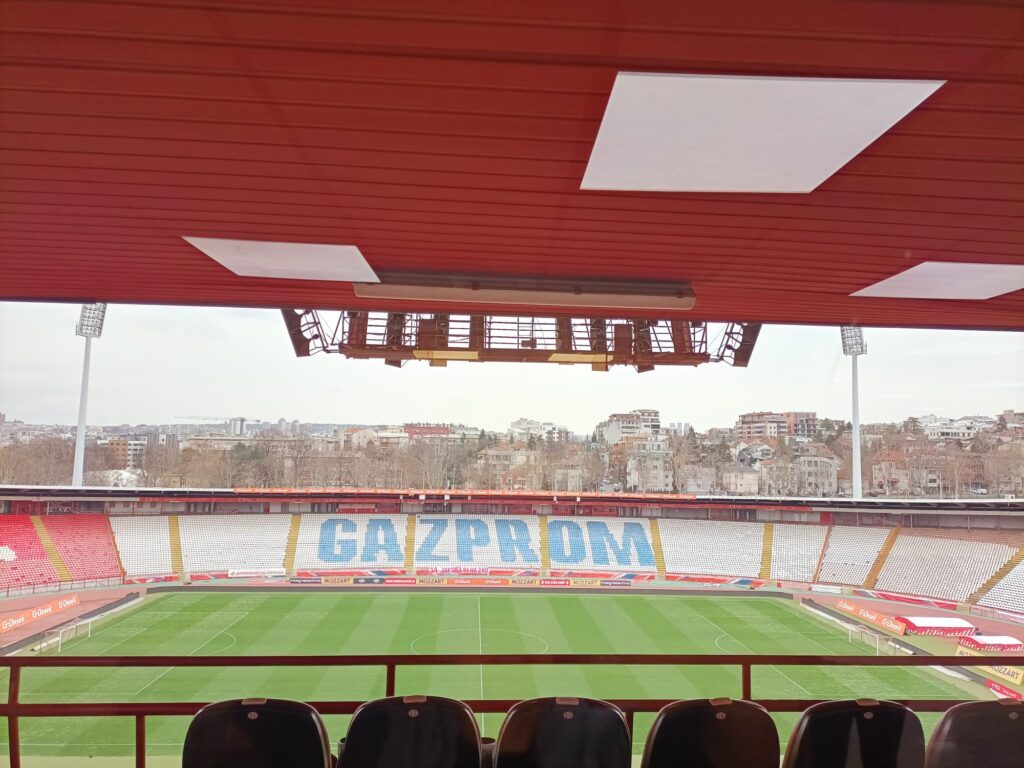
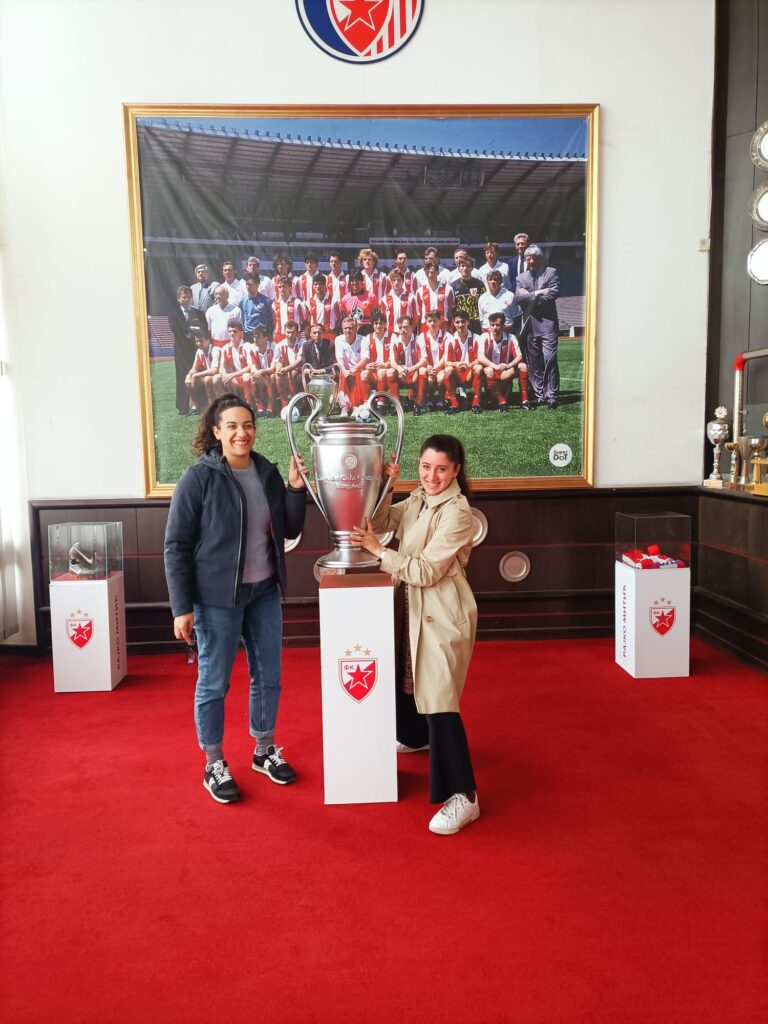
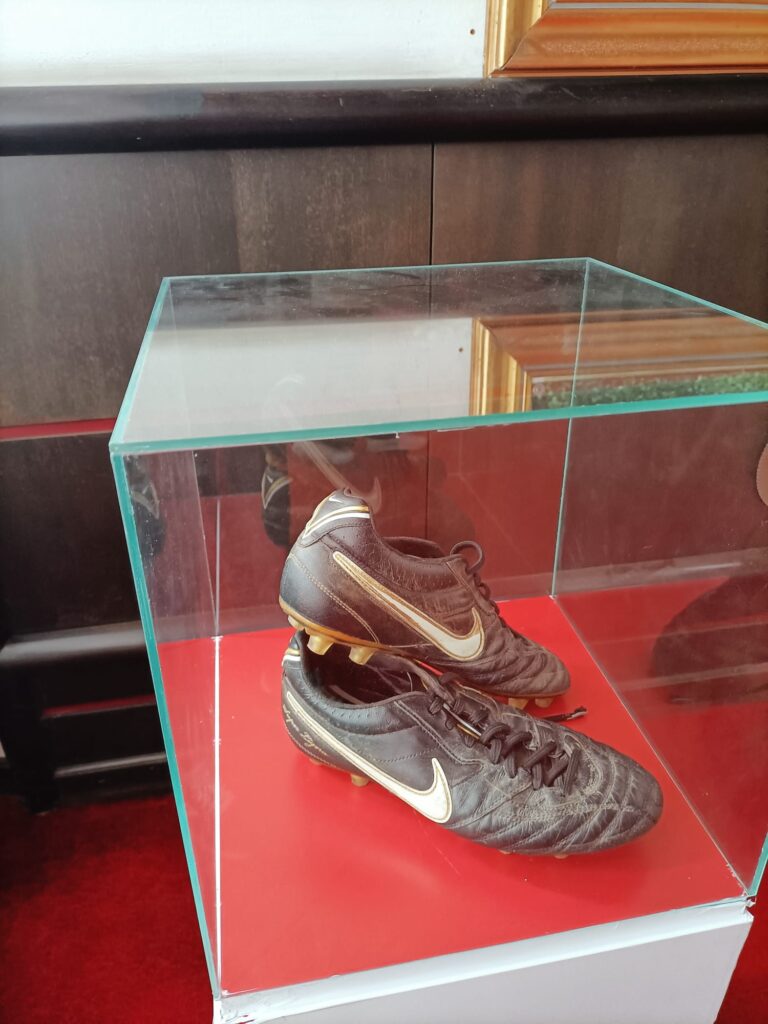
ATTIVITA’ LOCALI – LOCAL ACTIVITIES

L’attività locale organizzata nell’ambito del progetto WOMAD ha avuto l’obiettivo di sensibilizzare i partecipanti sul tema dell’inclusione e della collaborazione con persone con disabilità, in particolare nel contesto sportivo. L’attività è stata strutturata in modo interattivo e pratico, con l’intento di far comprendere l’importanza della cooperazione e dell’accessibilità all’interno del mondo dello sport.
I partecipanti sono stati suddivisi in gruppi di lavoro. A ciascun gruppo è stata assegnata una task specifica, che riguardava diversi aspetti del mondo sportivo, come la creazione di un programma di allenamento inclusivo o la progettazione di attività sportive che fossero accessibili a tutti. Ogni partecipante ha ricevuto il compito di impersonare una persona con una specifica disabilità, come la dislessia, la disabilità motoria o visiva, per sperimentare in prima persona le difficoltà che queste persone potrebbero affrontare durante l’attività sportiva.
Tutti i gruppi hanno collaborato per raggiungere l’obiettivo assegnato, lavorando insieme per trovare soluzioni pratiche e inclusive che permettessero di rendere lo sport più accessibile a tutti, indipendentemente dalle capacità fisiche o cognitive. Questa esperienza ha permesso ai partecipanti di comprendere in modo concreto l’importanza di un approccio inclusivo e di come l’adattamento delle attività possa favorire la partecipazione di tutti, in particolare delle persone con disabilità.
Al termine dell’attività, i gruppi hanno condiviso i risultati ottenuti e discusso le soluzioni adottate, riflettendo sull’importanza della collaborazione e del rispetto reciproco nel contesto sportivo. L’attività ha avuto un forte impatto educativo, poiché ha permesso ai partecipanti di sperimentare direttamente le sfide e le opportunità legate all’inclusione, aumentando la loro consapevolezza sulla necessità di abbattere le barriere nei contesti sportivi e nella società in generale.

The local activity organized within the framework of the WOMAD project aimed to raise awareness among participants about inclusion and collaboration with people with disabilities, particularly in the sports context. The activity was designed to be interactive and practical, with the goal of emphasizing the importance of cooperation and accessibility in the world of sports.
Participants were divided into working groups. Each group was assigned a specific task related to different aspects of sports, such as creating an inclusive training program or designing sports activities accessible to everyone. Each participant was tasked with role-playing a person with a specific disability, such as dyslexia, motor disability, or visual impairment, to experience firsthand the challenges these individuals might face during sports activities.
All groups collaborated to achieve their assigned goals, working together to find practical and inclusive solutions to make sports more accessible to everyone, regardless of their physical or cognitive abilities. This experience allowed participants to gain a concrete understanding of the importance of an inclusive approach and how adapting activities can promote the participation of all individuals, especially those with disabilities.
At the end of the activity, the groups shared their results and discussed the solutions they had adopted, reflecting on the importance of collaboration and mutual respect in the sports context. The activity had a strong educational impact, as it allowed participants to directly experience the challenges and opportunities related to inclusion, increasing their awareness of the need to break down barriers in sports and society as a whole.
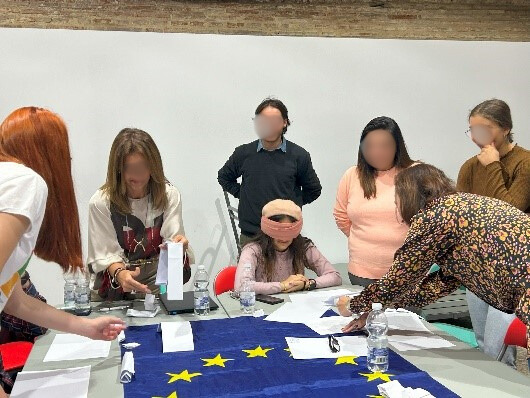
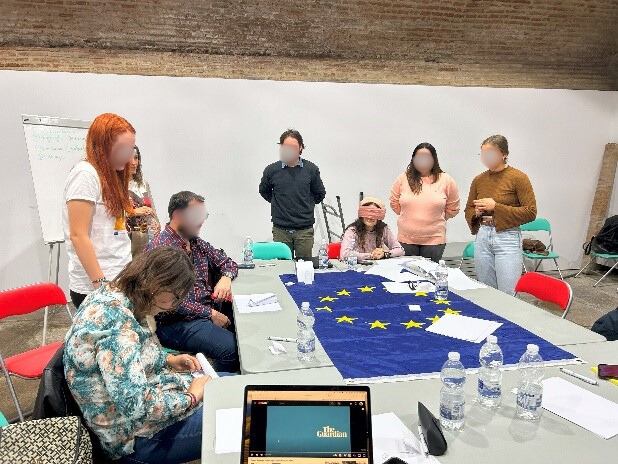
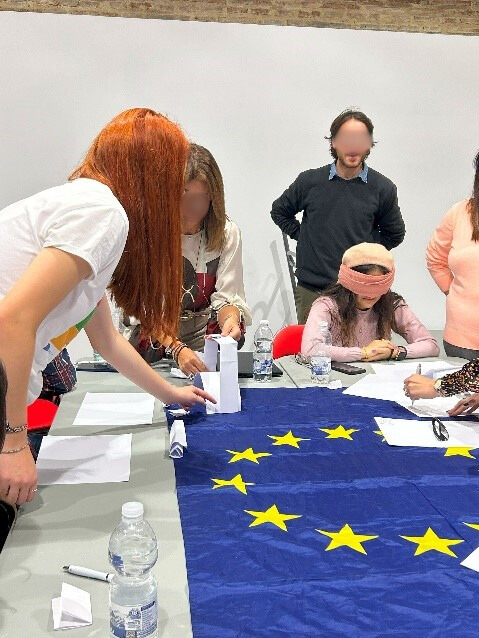

MODELLI DA SEGUIRE
Nella seconda fase dell’attività locale del progetto WOMAD, sono state condivise le storie di due atlete di grande impatto, Caster Semenya e Annet Negesa, come esempio di donne che hanno combattuto per la parità di genere nello sport, affrontando sfide straordinarie legate sia alla discriminazione di genere che alle questioni legate alla loro identità sessuale.
Caster Semenya, atleta sudafricana di corsa, è diventata un simbolo della lotta per l’uguaglianza e contro la discriminazione di genere e razza. La sua carriera è stata segnata da numerosi tentativi di limitarla o di metterla sotto pressione a causa dei suoi livelli di testosterone naturali, considerati “troppo alti” secondo gli standard sportivi. Nonostante le critiche e le polemiche, Caster ha continuato a difendere il diritto di ogni atleta a essere trattato con rispetto e dignità, indipendentemente dalle caratteristiche biologiche. La sua storia è stata condivisa per sensibilizzare i partecipanti sul tema delle disuguaglianze basate sul sesso e sul genere, non solo nell’accesso alle competizioni, ma anche nel modo in cui le donne vengono giudicate nello sport.
Annet Negesa, atleta ugandese di atletica leggera, ha vissuto una vicenda simile a quella di Semenya. Nel 2014, Negesa fu esclusa da una competizione internazionale dopo essere stata sottoposta a test che misuravano il suo livello di testosterone, ritenuto troppo elevato per competere con le donne. La sua esclusione, unita alle difficoltà che ha incontrato nel far riconoscere il suo diritto di competere, ha attirato l’attenzione internazionale sulle ingiustizie che molte atlete affrontano. La sua storia ha evidenziato come le politiche sportive possano essere discriminanti e come molte donne siano costrette a lottare non solo contro avversari fisici, ma anche contro pregiudizi sistemici.
I partecipanti all’attività hanno avuto l’opportunità di riflettere sulle difficoltà e le battaglie che entrambe le atlete hanno affrontato per difendere i propri diritti e le proprie scelte, in un mondo sportivo che spesso non riconosce la pluralità delle esperienze e delle identità di genere. Le storie di Semenya e Negesa hanno stimolato un dibattito tra i partecipanti sul tema della parità di genere, invitandoli a riflettere su come la discriminazione basata su caratteristiche biologiche e di genere possa influire sulla carriera e sulla vita di un’atleta.
Questa fase dell’attività ha contribuito a sensibilizzare i partecipanti sull’importanza di combattere ogni forma di discriminazione, incoraggiando un cambiamento culturale che possa promuovere una maggiore equità e inclusione nelle pratiche sportive, sia a livello locale che internazionale.

INSPIRING ROLE MODELS
In the second phase of the WOMAD project’s local activity, the stories of two impactful athletes, Caster Semenya and Annet Negesa, were shared as examples of women who have fought for gender equality in sports, facing extraordinary challenges related to both gender discrimination and issues surrounding their sexual identity.
Caster Semenya, a South African middle-distance runner, has become a symbol of the fight for equality and against gender and racial discrimination. Her career has been marked by numerous attempts to limit or pressure her due to her naturally high testosterone levels, deemed “too high” according to sports standards. Despite criticism and controversy, Caster has continued to advocate for every athlete’s right to be treated with respect and dignity, regardless of their biological characteristics. Her story was shared to raise awareness among participants about inequalities based on sex and gender, not only in access to competitions but also in the way women are judged in sports.
Annet Negesa, a Ugandan track and field athlete, experienced a similar ordeal to Semenya. In 2014, Negesa was excluded from an international competition after undergoing tests that measured her testosterone level, which was deemed too high for her to compete as a woman. Her exclusion, coupled with the challenges she faced in having her right to compete recognized, drew international attention to the injustices many female athletes face. Her story highlighted how sports policies can be discriminatory and how many women are forced to fight not only against physical opponents but also against systemic biases.
The participants in the activity had the opportunity to reflect on the difficulties and battles both athletes faced to defend their rights and choices in a sporting world that often fails to recognize the diversity of experiences and gender identities. The stories of Semenya and Negesa sparked a discussion among participants on the topic of gender equality, encouraging them to consider how discrimination based on biological and gender characteristics can impact an athlete’s career and life.
This phase of the activity helped raise awareness among participants about the importance of combating all forms of discrimination, fostering a cultural shift toward greater equity and inclusion in sports practices, both locally and internationally.
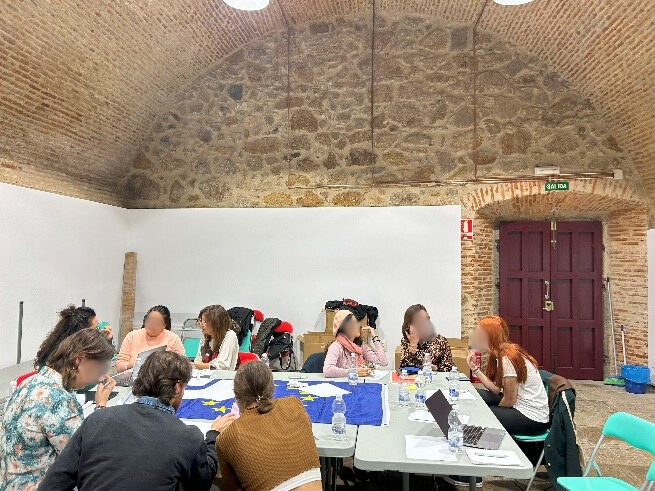
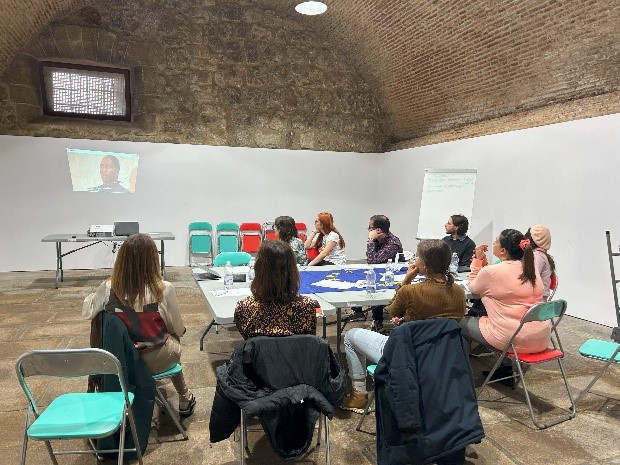

BASKET!
Un’altra attività locale significativa del progetto WOMAD è stata l’organizzazione di una partita di basket mista, che ha visto la partecipazione di uomini e donne insieme in un ambiente sportivo inclusivo. L’obiettivo di questa attività era quello di promuovere l’uguaglianza di genere nello sport e di sensibilizzare i partecipanti sull’importanza della collaborazione tra sessi, abbattendo gli stereotipi di genere che spesso dominano nel mondo sportivo.
La partita è stata strutturata in modo da coinvolgere equamente sia uomini che donne, garantendo che le squadre fossero miste e che le dinamiche di gioco favorissero una piena partecipazione di tutti. Ogni partecipante, indipendentemente dal sesso, ha avuto l’opportunità di giocare insieme, contribuendo alla creazione di un’atmosfera di collaborazione, rispetto e parità.
L’attività è stata concepita non solo come un momento di sport, ma anche come un’opportunità educativa per discutere l’importanza dell’inclusione di genere, e per sfidare le aspettative tradizionali legate ai ruoli di uomini e donne nel contesto sportivo. Durante l’evento, sono stati affrontati temi come il valore dell’integrazione di genere nelle pratiche sportive quotidiane e l’importanza di garantire pari opportunità per tutti, indipendentemente dal sesso.
I partecipanti hanno avuto l’opportunità di lavorare insieme in squadra, dimostrando che le differenze di genere non ostacolano il raggiungimento di obiettivi comuni, ma anzi, possono arricchire l’esperienza di gioco e rafforzare la coesione del gruppo. L’attività ha anche dato spazio a momenti di riflessione post-partita, durante i quali i partecipanti hanno condiviso le proprie esperienze e le sfide che avevano affrontato durante il gioco, discutendo su come queste potessero essere paragonate alle difficoltà che le donne affrontano nello sport a livello professionale.
Questa partita di basket mista ha avuto un impatto positivo, non solo come attività sportiva, ma anche come strumento di sensibilizzazione e di cambiamento culturale, promuovendo la parità di genere e mostrando che il lavoro di squadra, il rispetto e l’inclusività sono fondamentali per costruire un ambiente sportivo più equo e aperto a tutti.

Another significant local activity of the WOMAD project was the organization of a mixed basketball game, which involved both men and women playing together in an inclusive sports environment. The objective of this activity was to promote gender equality in sports and raise awareness among participants about the importance of collaboration between genders, breaking down the gender stereotypes that often dominate the sports world.
The game was structured to equally involve both men and women, ensuring that the teams were mixed and that the dynamics of the game favored full participation from everyone. Each participant, regardless of gender, had the opportunity to play together, contributing to the creation of an atmosphere of collaboration, respect, and equality.
The activity was conceived not only as a sports moment but also as an educational opportunity to discuss the importance of gender inclusion and challenge traditional expectations related to the roles of men and women in the sports context. During the event, topics such as the value of gender integration in everyday sports practices and the importance of ensuring equal opportunities for all, regardless of gender, were addressed.
Participants had the chance to work together as a team, demonstrating that gender differences do not hinder the achievement of common goals but can actually enrich the playing experience and strengthen group cohesion. The activity also included moments of reflection after the game, during which participants shared their experiences and the challenges they faced during the game, discussing how these could be compared to the difficulties women face in professional sports.
This mixed basketball game had a positive impact, not only as a sporting activity but also as a tool for raising awareness and fostering cultural change, promoting gender equality and showing that teamwork, respect, and inclusivity are essential for creating a more equitable and open sports environment for all.
